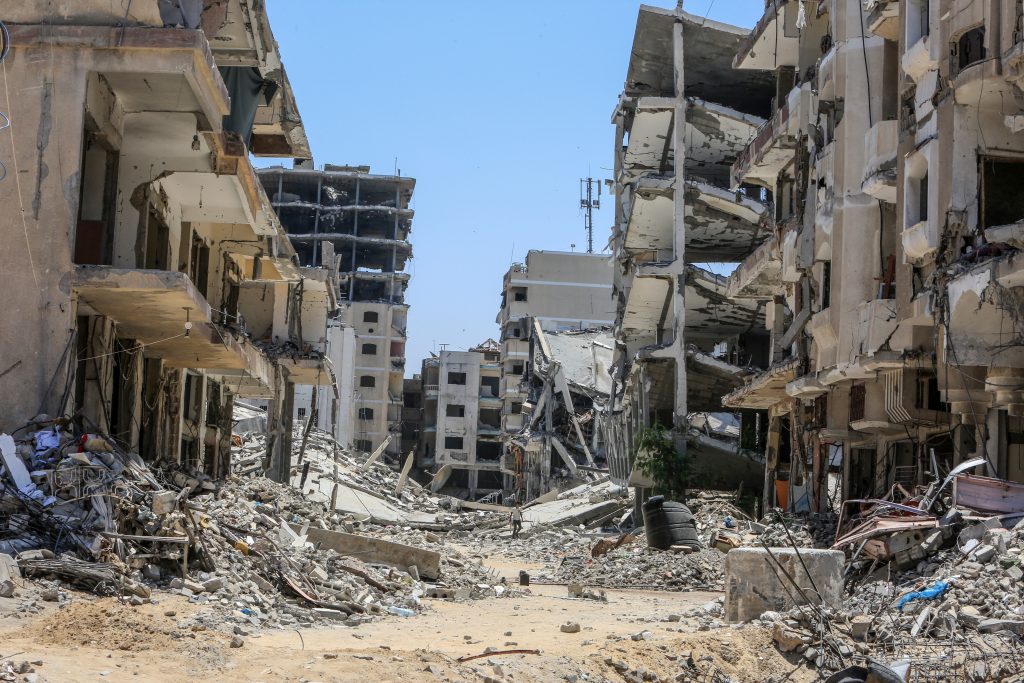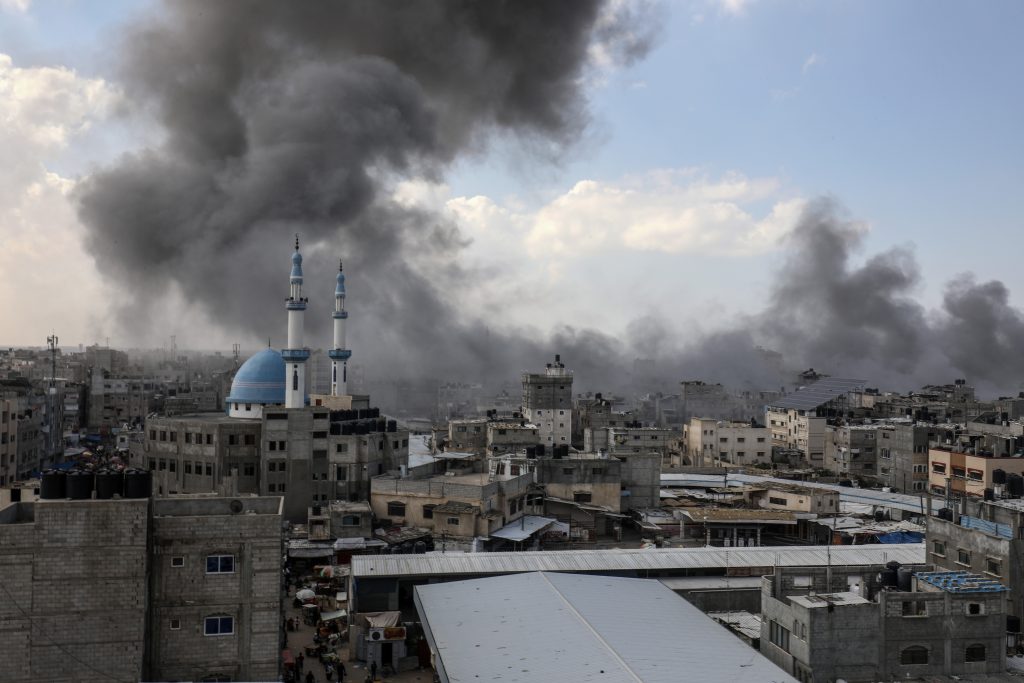Why Hamas cannot be left on its feet
US Secretary of State Antony Blinken said Hamas is again refusing to free hostages. In this Daily Briefing, Ruth Wasserman Lande explains why Hamas cannot be left on its feet.
5 November, 2024.
US Secretary of State Antony Blinken said Hamas is again refusing to free hostages. In this Daily Briefing, Ruth Wasserman Lande explains why Hamas cannot be left on its feet.
5 November, 2024.
Prof. Zaki Shalom: When you look at what happened in the last year, there were ups and downs. Yes, there were disagreements and embarrassing moments. However, you see that Israel has done what it wanted to do.
For example, while the United States opposed the entry of Israeli soldiers into Gaza, Israel proceeded. The U.S. also opposed the capture of Gaza hospitals, yet Israel captured them. America requested that Israel not enter Rafah, but Israel did. The U.S. further opposed an Israeli attack on Iran, which was ultimately carried out by American forces.
I don’t belong to those who think there is going to be a dramatic change if the winner is going to be [former U.S. President Donald] Trump or [Vice President Kamala] Harris. It all depends on us, on our unity in Israel, on our resilience, on our standing, and on what we want to do.
Published in YNET, November 5, 2024.

Moshe Fuzaylov: Defeating Hamas is a prerequisite for regional stability. Israel needs to act for a clear and unequivocal defeat of Hamas, during which the IDF will control the territories of the Strip, cleanse the area of terror centers, and transfer security responsibility to the IDF, via its Civil Administration, or to partner mediators. This is a critical condition for the process of defeating Hamas. IDF management will enable us to control the civilian power centers, and ensure that Hamas cannot recruit renewed support among the local population.
Prof. Col. (res.) Gabi Siboni: Expectations of an imminent end to combat in general in Gaza are unrealistic. I just want to remind us all that we have been fighting in Judea and Samaria since 2002, and we are still fighting, and probably in Gaza, we will fight for decades ahead.
The Israeli government’s goals are very clear: one, the destruction of Hamas, both civilian governance and military capabilities; two, creating conditions for the return of the hostages; and three, preventing Gaza from becoming a renewed threat to Israel.
Published in JNS, November 4, 2024.
/*! elementor - v3.21.0 - 30-04-2024 */
Ruth Wasserman Lande explains what a real refugee agency looks like, and why UNRWA is not one of them. Have you heard of UNKRA? Probably not. UNKRA resettled three million Koreans in five years, with one-third of UNRWA’s budget.
1 November, 2024.
Arsen Ostrovsky: Yes, absolutely aid ought to go into Gaza, and Israel is doing everything possible to facilitate that, but it should not go through UNRWA, which has become an inseparable & indistinguishable arm of Hamas, masquerading as a relief organization.
The interview took place on Sky News Australia on November 1, 2024
Ruth Wasserman Lande on why the Palestinian cause is of supreme importance to Iran. The inordinate emphasis Iran places on Jerusalem is a key part of its overarching agenda to overtake Saudi as the true guardian of Islam; Al Aqsa, a symbol strong enough to stack up against Mecca & Medina, would be at the heart of the Iranian Caliphate.
The interview took place on the I24 channel on November 2, 2024.
Arsen Ostrovsky, commenting on the new Hezbollah leader, Naim Qassem: If the new Hezbollah leader wants to make sure he sees out the week and out-serves his predecessor, he would be well advised to withdraw Hezbollah from southern Lebanon, stop the daily rockets attacks on Israel and abide by UNSC Resolution 1701.
The interview took place on Sky News Australia on October 31, 2024.
Prof. Kobi Michael: The misreporting of a hospital bombing incident shortly after the war broke out was a case in point.
Israel was accused, shortly after the war started, of bombing Al Ahli Hospital in Gaza City and killing 500 people. Analysis within a few days, including satellite photos analyzed by French intelligence, suggested the parking lot, not the hospital, was hit, that it was hit by a rocket misfired by Palestinian Islamic Jihad, and that only 30 people were killed.
But they keep counting 500. It appears in figures provided by the Ministry of Health.
Published in The Epoch Times, October 31, 2024.

Israel launched three waves of airstrikes into Iran overnight in response to a series of attacks from Tehran over the past year. Prof. Kobi Michael tells The Sun how Israel’s next strike against Iran will “paralyse” the country.
October 26, 2024.
https://youtu.be/7jGJeQe8QfM
Ruth Wasserman Lande: So, allow me to point out that there is a difference in how the attack is perceived by people who may not be very familiar with its objectives, the extent of the damage inflicted, and other relevant factors. To some, it may appear limited compared to their expectations. However, in my humble opinion, the attack has indeed met its objectives, especially given the constraints associated with the upcoming U.S. elections.
First, allow me to say that the Iranians, or rather the Islamic Republic of Iran, have been attacking Israel for a very long time. Even before October 7th, rockets were raining down on civilians in southern Israel, and everyone seemed to accept this as a normal state of affairs that Israeli civilians should simply endure. However, October 7th has been a turning point.
I foresee that, at least for the time being, there will likely be calm until the American elections. However, I don’t believe this marks the end of the tit-for-tat exchanges, as you called them, between Israel and the Islamic Republic of Iran. One reason for this is Iran’s obsessive aggression against Israel.
Published in BBC – The Newshour, 26 October 2024.
https://youtu.be/D5wb-llpVU4